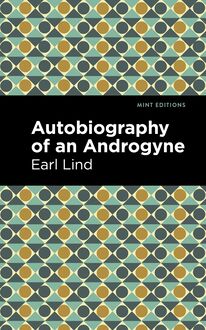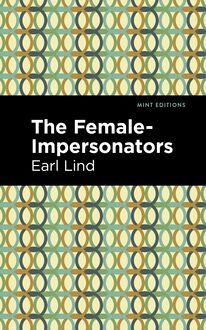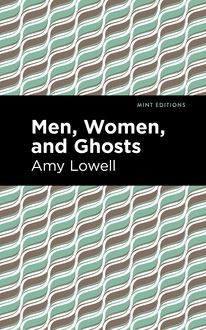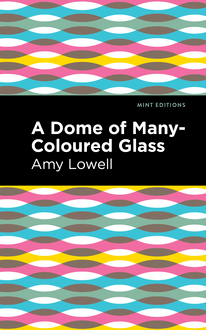-
 Univers
Univers
-
 Ebooks
Ebooks
-
 Livres audio
Livres audio
-
 Presse
Presse
-
 Podcasts
Podcasts
-
 BD
BD
-
 Documents
Documents
-
- Cours
- Révisions
- Ressources pédagogiques
- Sciences de l’éducation
- Manuels scolaires
- Langues
- Travaux de classe
- Annales de BEP
- Etudes supérieures
- Maternelle et primaire
- Fiches de lecture
- Orientation scolaire
- Méthodologie
- Corrigés de devoir
- Annales d’examens et concours
- Annales du bac
- Annales du brevet
- Rapports de stage
La lecture à portée de main

Vous pourrez modifier la taille du texte de cet ouvrage
Découvre YouScribe en t'inscrivant gratuitement
Je m'inscrisDécouvre YouScribe en t'inscrivant gratuitement
Je m'inscrisEn savoir plus
Vous pourrez modifier la taille du texte de cet ouvrage
En savoir plus

Description
The Unlit Lamp (1924) is a novel by Radclyffe Hall. After publishing several collections of poems, Hall turned to fiction in 1924 with two successful novels. The Unlit Lamp is the story of a young woman with an unhappy home life who falls in love with an older teacher and dreams of moving to London to become a doctor. Despite her independent spirit, Joan struggles to escape the clutches of her controlling mother. “Mrs. Ogden put her hand up to her head wearily, glancing at Joan as she did so. Joan was so quick to respond to the appeal of illness. Mrs. Ogden would not have admitted to herself how much she longed for this quick response and sympathy. […] There were times, growing more frequent of late, when she longed, yes, longed to break down utterly, to become bedridden, to be waited upon hand and foot, to have arresting symptoms of her own, any number of them.” Unhappily married to the Colonel, a cold and distant man, Mrs. Ogden depends on her daughters for emotional support. As Joan and Milly draw closer the age of independence, however, their mother begins thinking up ways to keep them at home, stifling their personal interests and desires. When Elizabeth Rodney, a governess, arrives to teach the sisters, Joan develops not only an attraction to the older woman, but a desire to move with her to London, where she dreams of becoming a doctor. Tragic and psychologically piercing, The Unlit Lamp is a story of friendship, family, and desire that continues to be recognized as a groundbreaking work of lesbian literature. With a beautifully designed cover and professionally typeset manuscript, this edition of Radclyffe Hall’s The Unlit Lamp is a classic work of British literature reimagined for modern readers.
Sujets
Informations
| Publié par | Mint Editions |
| Date de parution | 11 mai 2021 |
| Nombre de lectures | 0 |
| EAN13 | 9781513295466 |
| Langue | English |
| Poids de l'ouvrage | 2 Mo |
Informations légales : prix de location à la page 0,0500€. Cette information est donnée uniquement à titre indicatif conformément à la législation en vigueur.
Extrait
The Unlit Lamp
Radclyffe Hall
The Unlit Lamp was first published in 1924.
This edition published by Mint Editions 2021.
ISBN 9781513295312 | E-ISBN 9781513295466
Published by Mint Editions®
minteditionbooks.com
Publishing Director: Jennifer Newens
Design & Production: Rachel Lopez Metzger
Project Manager: Micaela Clark
Typesetting: Westchester Publishing Services
C ONTENTS B OOK 1 C HAPTER 1 C HAPTER 2 C HAPTER 3 C HAPTER 4 C HAPTER 5 C HAPTER 6 C HAPTER 7 C HAPTER 8 C HAPTER 9 B OOK 2 C HAPTER 10 C HAPTER 11 C HAPTER 12 C HAPTER 13 C HAPTER 14 C HAPTER 15 C HAPTER 16 C HAPTER 17 C HAPTER 18 B OOK 3 C HAPTER 19 C HAPTER 20 C HAPTER 21 C HAPTER 22 C HAPTER 23 C HAPTER 24 B OOK 4 C HAPTER 25 C HAPTER 26 C HAPTER 27 C HAPTER 28 C HAPTER 29 C HAPTER 30 C HAPTER 31 C HAPTER 32 C HAPTER 33 C HAPTER 34 C HAPTER 35 C HAPTER 36 C HAPTER 37 C HAPTER 38 C HAPTER 39 C HAPTER 40 B OOK 5 C HAPTER 41 C HAPTER 42 C HAPTER 43 C HAPTER 44 C HAPTER 45 C HAPTER 46 C HAPTER 47 C HAPTER 48 C HAPTER 49 C HAPTER 50
BOOK 1
Chapter 1
1
T HE DINING-ROOM AT L EASIDE WAS also Colonel Ogden’s study. It contained, in addition to the mahogany sideboard with ornamental brackets at the back, the three-tier dumb waiter and the dining-table with chairs en suite , a large roll-top desk much battered and ink-stained, and bleached by the suns of many Indian summers. There was also a leather arm-chair with a depression in the seat, a pipe-rack and some tins of tobacco. All of which gave one to understand that the presence of the master of the house brooded continually over the family meals and over the room itself in the intervals between. And lest this should be doubted, there was Colonel Ogden’s photograph in uniform that hung over the fireplace; an enlargement showing the colonel seated in a tent at his writing-table, his native servant at his elbow. The colonel’s face looked sternly into the camera, his pen was poised for the final word, authority personified. The smell of the colonel’s pipes, past and present, hung in the air, and together with the general suggestion of food and newspapers, produced an odour that became the very spirit of the room. In after years the children had only to dose their eyes and think of their father to recapture the smell of the dining-room at Leaside.
Colonel Ogden looked at his watch; it was nine o’clock, He pushed back his chair from the breakfast table, a signal for the family to have done with eating.
He sank into his arm-chair with a sigh; he was fifty-five and somewhat stout. His small, twinkling eyes scanned the columns of The Times as if in search of something to pounce on. Presently he had it.
“Mary.”
“Yes, dear.”
“Have you seen this advertisement of the Army and Navy?”
“Which one, dear?”
“The provision department. Surely we arc paying more than this for bacon?”
He extended the paper towards his wife; his hand shook a little, his face became very slightly suffused. Mrs. Ogden glanced at the paper; then she lied quickly.
“Oh, no, my love, ours is twopence cheaper.”
“Oh!” said Colonel Ogden. “Kindly ring the bell.”
Mrs. Ogden obeyed. She was a small woman, pale and pensive looking; her neat hair, well netted, was touched with grey, her soft brown eyes were large and appealing, but there were lines about her mouth that suggested something different, irritable lines that drew the corners of the lips down a little. The maid came in; Colonel Ogden smiled coldly. “The grocer’s book, please”, he said.
Mrs. Ogden quailed; it was unfortunately the one day of all the seven when the grocer’s book would be in the house.
“What for, James?” she asked.
Colonel Ogden caught the nervous tremor in her voice, and his smile deepened. He did not answer, and presently the servant returned book in hand. Colonel Ogden took it, and with the precision born of long practice turned up the required entry.
“Mary! Be good enough to examine this item.”
She did so and was silent.
“If”, said Colonel Ogden in a bitter voice, “if you took a little more trouble, Mary, to consider my interests, if you took the trouble to ascertain what we are paying for things, there would be less for me to worry about, less waste of money, less…” He gasped a little and pressed his left side, glancing at his wife as he did so.
“Don’t get excited, James, I beg; do remember your heart.”
The colonel leant back in his chair. “I dislike unnecessary waste, Mary.”
“Yes, dear, of course. I wonder I didn’t see that notice; I shall write for some of their bacon today and countermand the piece from Goodridge’s. I’ll go and do it now—or would you like me to give you your tabloids?”
“Thanks, no”, said the colonel briefly.
“Do the children disturb you? Shall they go upstairs?”
He got up heavily. “No, I’m going to the club.”
Something like a sigh of relief breathed through the room; the two children eyed each other, and Milly, the younger, made a secret face. She was a slim child with her mother’s brown eyes. Her long yellow hair hung in curls down her back; she looked fragile and elfish; some people thought her pretty. Colonel Ogden did; she was her father’s favourite.
There were two years between the sisters; Milly was ten, Joan twelve. They were poles apart in disposition as in appearance. Everything that Milly felt she voiced instantly; almost everything that Joan felt she did not voice. She was a silent, patient child as a rule, but could, under great provocation, display a stubborn will that could not be coped with, a reasoning power that paralysed her mother and infuriated Colonel Ogden. It was not temper exactly; Joan was never tearful, never violent, only coldly logical and self-assured and firm. You might lock her in her bedroom and tell her to ask God to make her a good child, but as likely as not she would refuse to say she was sorry in the end. Once she had remarked that her prayers had gone unanswered, and after this she was never again exhorted to pray for grace.
It was what she considered injustice that roused the devil in Joan. When the cat had been turned out to fend for itself during the summer holidays, when a servant had been dismissed at a moment’s notice for some trifling misdemeanour, these and such-like incidents, which were fortunately of rare occurrence, had been known to produce in Joan the mood that her mother almost feared. Then it was that Joan had spoken her mind, and had remained impenitent until finally accorded the forgiveness she had not asked for.
Joan was large-boned and tall for her age, lanky as a boy, with a pale face and short black hair. Her grey eyes were not large and not at all appealing, but they were set well apart; they were intelligent and frank. She escaped being plain by the skin of her teeth; she would have been plain had her face not been redeemed by a short, straight nose and a beautiful mouth. Somehow her mouth reassured you.
They had cut her thick hair during scarlet fever, and Joan refused to allow it to grow again. She invariably found scissors and snipped and snipped, and Mrs. Ogden’s resistance broke down at the final act of defiance, when she was discovered hacking at her hair with a pen-knife.
2
A S THE FRONT DOOR SLAMMED behind Colonel Ogden the sisters smiled at each other. Mrs. Ogden had gone to countermand the local bacon, and they were alone.
“Rot!” said Joan firmly.
“What is?” asked Milly.
“The bacon row.”
“Oh, how dare you!” cried Milly in a voice of rapture. “Supposing you were heard!”
“There’s no one to hear me—anyhow, it is rot!”
Milly danced. “You’ll catch it if mother hears you!” Her fair curls bobbed as she skipped round the room.
“Mind that cup”, warned Joan.
But it was too late; the cup fell crashing to the floor. Just then Mrs. Ogden came in.
“Who broke that cup?”
There was silence.
“Well?” she waited.
Milly caught Joan’s eye. Joan saw the appeal in that look. Milly began.
“It was my fault”, said Joan calmly.
“Then you ought to be more careful, especially when you know how your father values this breakfast set. Really it’s too bad; what will he say? What possessed you, Joan?”
Mrs. Ogden put her hand up to her head wearily, glancing at Joan as she did so. Joan was so quick to respond to the appeal of illness. Mrs. Ogden would not have admitted to herself how much she longed for this quick response and sympathy. She, who for years had been the giver, she who had ministered to a man with heart disease, she who had become a veritable reservoir of soothing phrases, solicitous actions, tabloids, hot soups and general restoratives. There were times, growing more frequent of late, when she longed, yes, longed to break down utterly, to become bedridden, to be waited upon hand and foot, to have arresting symptoms of her own, any number of them.
India, the great vampire, had not wrecked her, for she was wiry, her little frame could withstand what her husband’s bulk had failed to endure. Mrs. Ogden was a strong woman. She did not look robust, however; this she knew and appreciated. Her pathetic eyes were sunken and somewhat dim, her nose, short and straight like Joan’s, looked pinched, and her drooping mouth was pale. All this Mrs. Ogden knew, and she used it as her stock-in-trade with her elder daughter. There were days when the desire to produce an effect upon someone became a positive craving. She would listen for Joan’s footsteps on the stairs, and then assume an attitude, head back against the couch, hand pressed to eyes. Sometimes there were silent tears hastily hidden after Joan had seen, or the short, dry cough so like her brother Henry’s. Henry had died of consumption. Then as Joan’s eyes would grow troubled, and the quick: “Oh, Mother darling, aren’t you well?” would burst from her lips, Mrs. Ogden’s conscience would smite her. But in spite of herself she would invariably answer: “It’s nothing, dearest; only my cough”, or “It’s only my head, Joan; it’s been very painful lately.”
Then Joan’s strong, young arms would
Attention
En entrant sur cette page, vous certifiez :
- 1. avoir atteint l'âge légal de majorité de votre pays de résidence.
- 2. avoir pris connaissance du caractère érotique de ce document.
- 3. vous engager à ne pas diffuser le contenu de ce document.
- 4. consulter ce document à titre purement personnel en n'impliquant aucune société ou organisme d'État.
- 5. vous engager à mettre en oeuvre tous les moyens existants à ce jour pour empêcher n'importe quel mineur d'accéder à ce document.
- 6. déclarer n'être choqué(e) par aucun type de sexualité.
YouScribe ne pourra pas être tenu responsable en cas de non-respect des points précédemment énumérés. Bonne lecture !
-
 Univers
Univers
-
 Ebooks
Ebooks
-
 Livres audio
Livres audio
-
 Presse
Presse
-
 Podcasts
Podcasts
-
 BD
BD
-
 Documents
Documents
-
Jeunesse
-
Littérature
-
Ressources professionnelles
-
Santé et bien-être
-
Savoirs
-
Education
-
Loisirs et hobbies
-
Art, musique et cinéma
-
Actualité et débat de société
-
Jeunesse
-
Littérature
-
Ressources professionnelles
-
Santé et bien-être
-
Savoirs
-
Education
-
Loisirs et hobbies
-
Art, musique et cinéma
-
Actualité et débat de société
-
Actualités
-
Lifestyle
-
Presse jeunesse
-
Presse professionnelle
-
Pratique
-
Presse sportive
-
Presse internationale
-
Culture & Médias
-
Action et Aventures
-
Science-fiction et Fantasy
-
Société
-
Jeunesse
-
Littérature
-
Ressources professionnelles
-
Santé et bien-être
-
Savoirs
-
Education
-
Loisirs et hobbies
-
Art, musique et cinéma
-
Actualité et débat de société
- Cours
- Révisions
- Ressources pédagogiques
- Sciences de l’éducation
- Manuels scolaires
- Langues
- Travaux de classe
- Annales de BEP
- Etudes supérieures
- Maternelle et primaire
- Fiches de lecture
- Orientation scolaire
- Méthodologie
- Corrigés de devoir
- Annales d’examens et concours
- Annales du bac
- Annales du brevet
- Rapports de stage











